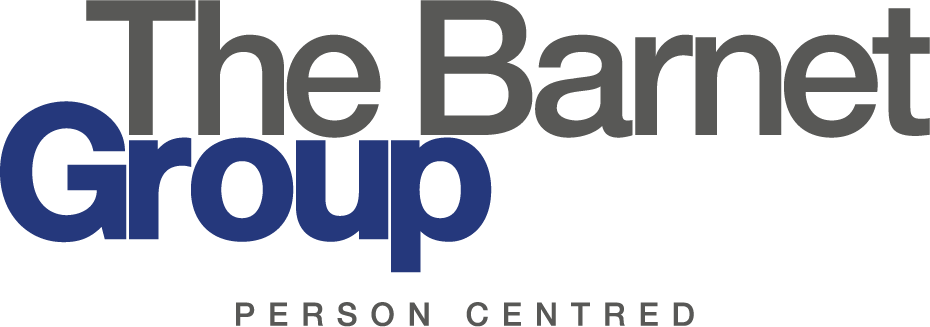How The Barnet Group are diminishing MSK conditions and prioritizing employee wellbeing with DSE

Based in London and owned by Barnet Council, The Barnet Group are parent to 5 companies. ‘Barnet Homes’ and ‘Your Choice Barnet’ are just two of which require adequate DSE training for employees to be provided
There have 500 employees across the group, and they're proud to be a certified Mindful Employer, having signed a charter to support employees mental health and wellbeing, when the initiative was launched back in 2014.
They work to provide social housing to prevent homelessness and run a social care service for those most vulnerable.
With the pandemic creating huge obstacles when it came to assessing employees DSE needs, the organisation needed a solution which would allow them to continue operating out of an office environment, seamlessly and efficiently.
We spoke to Ben Wildman, Health Safety and Compliance Manager, who has worked for The Barnet Group for over 10 years. He touched more on the goals and values within The Barnet Group.


We have already seen a 50% decrease in reported MSK diseases this year alone since the implementation of WorkRite.
What were the struggles they faced?
The Barnet Group were amongst dozens of other companies, across the globe, who struggled to provide adequate DSE training when the pandemic first hit. Ben highlighted the impacts this had on his team. ‘The first 6 weeks of the pandemic were exceptionally difficult, especially when everyone was turning to us for guidance; truth be told, we were just as in the dark as they were. Plus, being a small team, answering the same questions repeatedly wasn’t time efficient.
'We needed to find a way to automate this process to make our workload more manageable.’
We are part of the public sector, so we need to provide the best service for our customers.
In the same breath, we also take a lot of actions around prioritising the mental and physical wellbeing of our staff, especially given the struggles of the past few years during the pandemic.’
‘Before WorkRite, the way we trained employees was quite mundane, and a lot harder when the assessment itself was based on people being in the office’, Ben explained. ‘It was a basic, on-the-shelf assessment, and we had a lot of our staff asking for a more interactive solution.’
Plus, it made Ben’s job a lot harder too. ‘With our sites being scattered around the borough, it was near impossible to get round to all sites, just to witness employees doing an assessment.’
Working from home can cause a variety of problems, such as seeing an increase in the diagnosis of MSK conditions. Finding a way to conduct regular risk assessments, was essential to remain complaint and ensure staff could continue to work efficiently.
‘It’s vital for us to keep staff healthy from ergonomic risks, not only for their wellbeing, but also as this could lead to further direct and indirect costs for the company, such as medical costs and agency fees to cover requiring jobs all add up.’
‘When it came to looking for a digital DSE training solution, our hand was kind of pushed due to the pandemic. Homeworking meant we had to quickly come up with another way to train our employees that were forced to work from home’, Ben stated.
What were the struggles they faced?
The Barnet Group were amongst dozens of other companies, across the globe, who struggled to provide adequate DSE training when the pandemic first hit. Ben highlighted the impacts this had on his team. ‘The first 6 weeks of the pandemic were exceptionally difficult, especially when everyone was turning to us for guidance; truth be told, we were just as in the dark as they were. Plus, being a small team, answering the same questions repeatedly wasn’t time efficient.
'We needed to find a way to automate this process to make our workload more manageable.’
We are part of the public sector, so we need to provide the best service for our customers.
In the same breath, we also take a lot of actions around prioritising the mental and physical wellbeing of our staff, especially given the struggles of the past few years during the pandemic.’
‘Before WorkRite, the way we trained employees was quite mundane, and a lot harder when the assessment itself was based on people being in the office’, Ben explained. ‘It was a basic, on-the-shelf assessment, and we had a lot of our staff asking for a more interactive solution.’
Plus, it made Ben’s job a lot harder too. ‘With our sites being scattered around the borough, it was near impossible to get round to all sites, just to witness employees doing an assessment.’
Working from home can cause a variety of problems, such as seeing an increase in the diagnosis of MSK conditions. Finding a way to conduct regular risk assessments, was essential to remain complaint and ensure staff could continue to work efficiently.
‘It’s vital for us to keep staff healthy from ergonomic risks, not only for their wellbeing, but also as this could lead to further direct and indirect costs for the company, such as medical costs and agency fees to cover requiring jobs all add up.’
‘When it came to looking for a digital DSE training solution, our hand was kind of pushed due to the pandemic. Homeworking meant we had to quickly come up with another way to train our employees that were forced to work from home’, Ben stated.


That’s when one of our trusted source’s recommended Ideagen’s WorkRite.
How does The Barnet Group use WorkRite?
When looking for a solution, The Barnet Group knew what they wanted to get out of the system. ‘It was important to us that we could cater for different working scenarios, regardless of whether our staff were working at a desk in their home office, from a laptop on their dining tables or even for those remaining in the office,’ Ben explains
Now it is easy for Ben to download reports and get their latest compliance figures too. ‘If I were to get a request from a manager asking how his staff are doing, I can run a specialised, filtered report, so I don’t have to give him information on the whole organisation.’
‘What’s more, we can now message multiple people in one hit.
If I have 10 members of staff who I need to relay the same message to, the system allows me to send it all in one go using the email templates. Tons of issues and actions can now be closed off in a matter of minutes.’
Ben also makes use of the systems ability to add hyperlinks to external sources of information. ‘We love the fact we can add links to our websites with policies and procedures, so we don’t have to keep emailing the same information repeatedly. The action rarely comes back to me and, instead, once they have answered the question, the system will tell our employees where they can find the relevant information, based on their answer.’
The results…
Simply put, WorkRite has revolutionised the way The Barnet Group conduct their DSE training and assessments.
It is now easier for Ben and his team to get specialised equipment, such as new chairs and footrests, to those who need it, decreasing MSK conditions by around 50%.
‘Not only is WorkRite brilliant value for money, but the time savings we’ve seen, now everyone has access to online DSE training, has been monumental.’
What’s more, the system has boosted DSE training and assessment completion rates. The weekly actions that arose from risk assessments and training were almost unmanageable before WorkRite.
150 actions were condensed down to 40, making Ben’s life easier and the team’s workload more manageable. Now he can concentrate on the people that really need it, without reiterating information dozens of times.
‘Staff have been very receptive of it, taking a lot of stress off myself and my small team, before WorkRite, our completion rate was only at 60%. It is now at 95%.’
Ben shared. ‘Even our CEO did the course as well and was very complementary on the training content. This was a huge tick in the box for us to continue to renew our service contract.’
Benefits
Completion rate was only at 60%. It is now at 95%
Reduced unmanageable workloads

Could Ideagen WorkRite become your gateway to improved employee wellbeing?
Contact us to find out how you could introduce streamlined and centralised control within your organisation.
Want to reduce the MSK conditions reported in your workplace by more than half? WorkRite can help you do that.
Find out how Ideagen WorkRite has helped even more of our customers
Tags:
